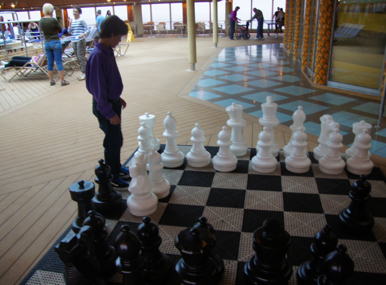Chess is Not Just a Game
Life is so interesting in so many ways. The history of chess is fascinating. The game of chess is one of those surprising tools that educators are discovering around the world. In it’s earliest forms chess was played in the 6th century in India. It spread and developed throughout the world from the Middle East to Europe. It became part of the education of Persian nobility. It reached Europe through Persia, the Byzantine and Arabian Empires. Chess survived a series of prohibitions and Church sanctions as it developed in the 15th century in Europe. It has become very popular in the modern world.
Years ago I started a program for bright, learning disabled high school students. One of the techniques I used was teaching them how to play chess. The reason behind this was based on some of the studies I had seen around the Structure of Intellect (SOI) program that pointed to the possibility that games actually improve thinking and memory skills dramatically. Chess, Mastermind, Othello, Scrabble and Backgammon were games my students “played” after they got their work done.
Over the years I watched the students improve dramatically at all levels. Now there is research that demonstrates that chess is definitely more than just a game for all levels and abilities. Research has shown that educational benefits of chess are substantial. Chess improves concentration, visual imagery, critical thinking, problem solving, abstract reasoning, pattern recognition, synthesis and evaluation. Chess also promotes imagination, creativity, independent thinking and the ability to focus better. Chess accommodates all modality strengths. It gives immediate feedback for moves. The American Foundation for Chess uses the game as a learning tool to teach higher level thinking skills, advanced math and reading skills and build self-esteem.
They have designed a program that is connected to State Student Standards for 2nd and 3rd graders. The program is called “The First Move” (www.af4c.org). You can contact them and ask them to come to your school or district. The program looks wonderful, although there can be a waiting list, it is well worth it. I would love to hear any thoughts or comments you have about chess in schools.

